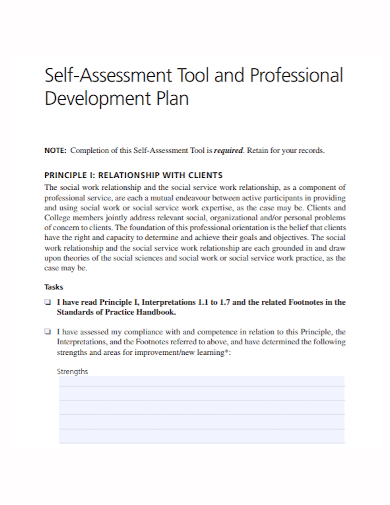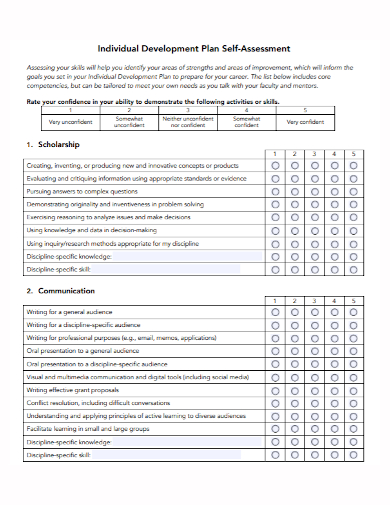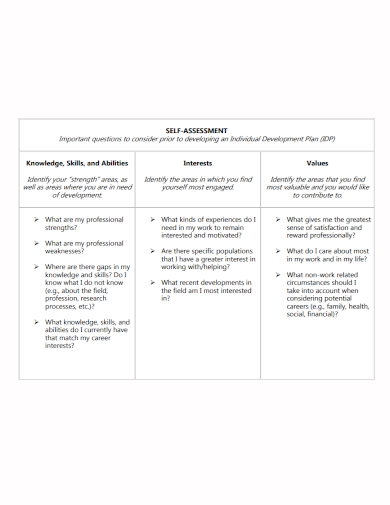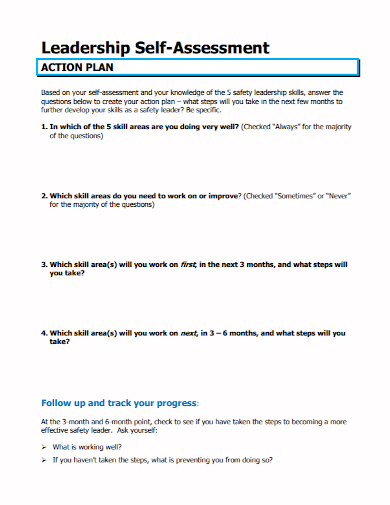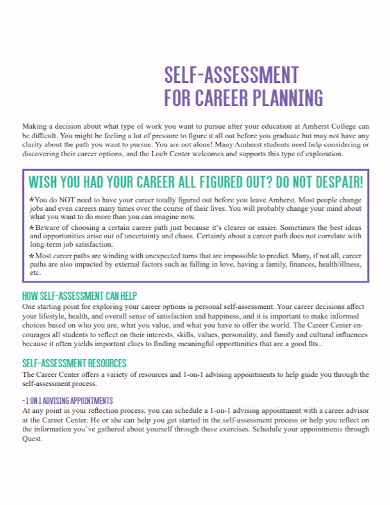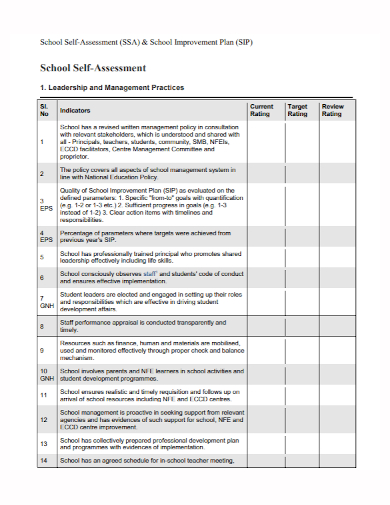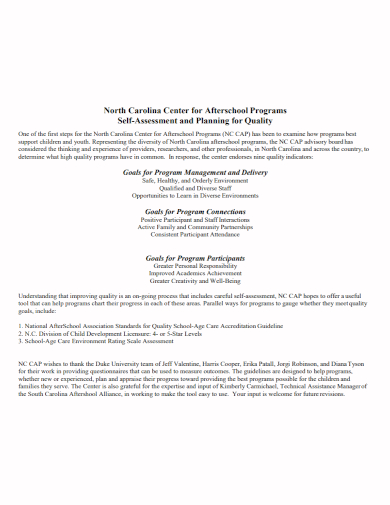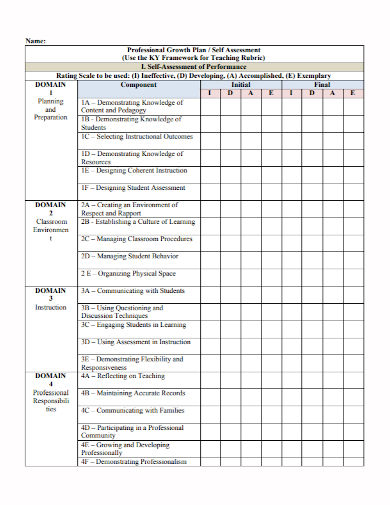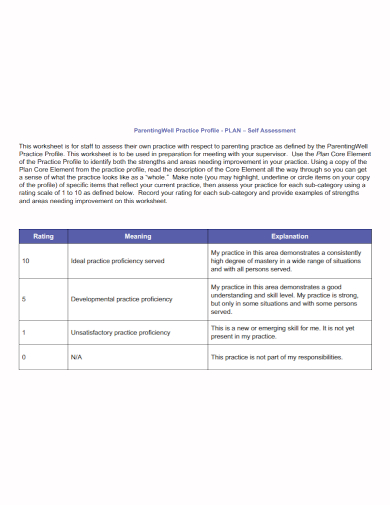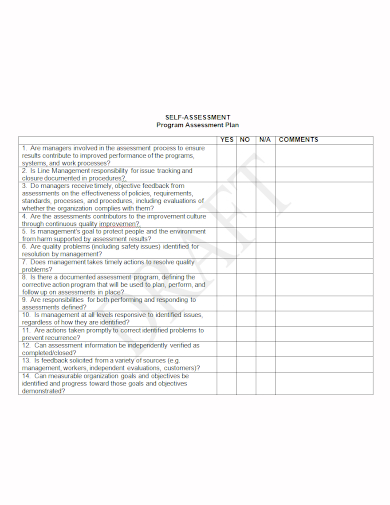Self-evaluation and development planning help to ensure that post-compulsory learning is always improving. They should be an intrinsic element of providers’ management processes and quality assurance arrangements, much like other instruments for continuously enhancing the quality of service. Their singular focus on the quality of learners’ experiences and the standards they attain, on the other hand, sets them apart from other components of providers’ excellence plans. Self-evaluation can be a useful strategy for measuring your career progress and development. Self-evaluation tests might help you see how you’ve improved your knowledge and skills at work. A self-evaluation is also a tool for your employer and company to keep track of your accomplishments. This article will teach you how to assess yourself and what to include in your self-evaluation.
Providers can use rigorous self-assessment and development planning to identify strengths and deficiencies in their services, as well as take steps to improve quality, raise standards, and increase overall effectiveness. The methods of self-evaluation and development planning should be extensive, thorough, and consultative.
10+ Self Assessment Plan Samples
1. Free Self Assessment Plan Template
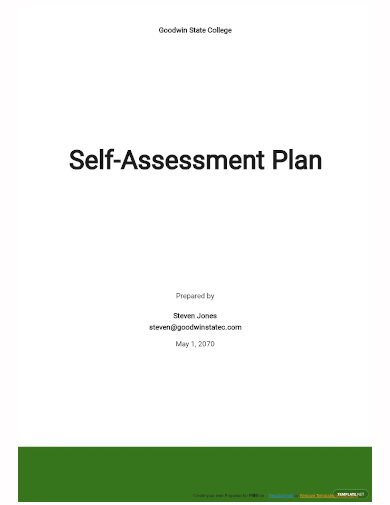
2. Self Assessment Development Plan
3. Individual Self Assessment Plan
4. Individual Self Assessment Development Plan
5. Leadership Self Assessment Action Plan
6. Self Assessment Career Plan
7. School Self Assessment Improvement Plan
8. Self Assessment Quality Plan
9. Self Assessment Professional Growth Plan
10. Parenting Self Assessment Plan
11. Self Assessment Program Plan
All About Self-Assessment Plan
Effective self-assessment is a continuous process that connects with providers’ ongoing planning and quality assurance processes and draws on the data generated by these processes; it focuses on learners, includes them as members of self-assessment teams, and considers feedback from their learning experiences; it involves all staff in reviewing their own performance and considering feedback from employers, subcontractors, and other stakeholders; and it generates rigorous, objective metric data. It also generates thorough and evaluative assessments that serve as a solid foundation for development plans that highlight areas for improvement and how they will be accomplished.
Writing Self-Assessment Plan
- Know the importance of self-assessment – Knowing why your manager has requested a self-evaluation is beneficial. Will he or she use it while writing your performance review? Will it be taken into account when you apply for increases or bonuses? How thorough should the assessment be? Is it necessary to incorporate any analytics? This information will serve as a good beginning point for your review and will eventually influence how you write it.
- Write a list of all your accomplishments – It’s time to reflect on your accomplishments over the past year. Make a master list of everything you’ve accomplished. For the time being, include everything that comes to mind. When it comes time to write your evaluation, you may pare down that list to the essentials—the accomplishments you’re most proud of, and especially those that added the most value to the firm.
- Gather your analytics
- List your struggles – You shouldn’t just use your self-evaluation to brag about yourself. It’s critical to demonstrate that you’re aware of the difficulties you face on the job. Be thorough once more. When you start writing, you can narrow the list down to the most important topics.
- Align your review with your goals – What were your manager’s or team’s objectives during the past year? What role did your efforts play in achieving those objectives? It’s critical to include this information in your self-evaluation so that your boss can see how you’ve contributed.
- Stay positive – It’s critical that you use positive language when describing problems you’ve encountered on the job. Your goal isn’t to draw attention to your mistakes, but to demonstrate your desire to learn from them. Offer your own answer to the situation wherever possible.
- Ask for opportunities – Your self-assessment is an excellent location to create a case for professional advancement. Remember that if you want something, you must be willing to ask for it. So, even if your supervisor hasn’t requested it, make your case for getting that certification, attending that training session, or registering for that conference. Your manager would most likely appreciate your eagerness to learn new things.
FAQs
What are the dos in making the self-assessment plan?
Take into account any input you’ve gotten from others. If you have any, testimonials or significant quotes are OK. Demonstrate that others value your contributions. Prioritize your tasks. When it comes to accomplishments, remember to focus on the highlights, and when it comes to obstacles, remember to focus on the significant concerns. Get a second opinion if you can. Before you submit your self-evaluation, have a friend, family member, or trusted coworker read it over. They can assist you with not only correcting mistakes but also ensuring that your tone is positive and productive.
What are the don’ts in making a self-assessment plan?
Make a list, but not just any list. A bulleted list of your achievements does not demonstrate much effort on your behalf. Make a draft of your review. Thoughtfully. Make sure you don’t make any mistakes. Even if writing isn’t a large part of your employment, typos and grammatical errors have no place in your self-evaluation. Proofread!
If you want to see more samples and formats, check out some self-assessment plan samples and templates provided in the article for your reference.
Related Posts
FREE 33+ Assessments
FREE 18+ Self-Evaluation Form Samples
FREE 13+ Management Evaluation Samples
FREE 10+ Faculty Self Assessment Samples
FREE 10+ Personal Development Plan Templates
FREE 9+ Marketing Evaluation Form Samples
FREE 9+ Sample Program Evaluation Forms
FREE 8+ Sample Career Action Plan
FREE 5+ Academic Career Development Plan Samples
FREE 14+ Sample Corrective Action Plan
FREE 10+ Faculty Performance Evaluation Samples
FREE 10+ Performance Action Plan Samples
FREE 8+ Sample Leadership Self Assessment
Dos in Writing Your Self-Evaluation
FREE 6+ Sample Training Evaluations

